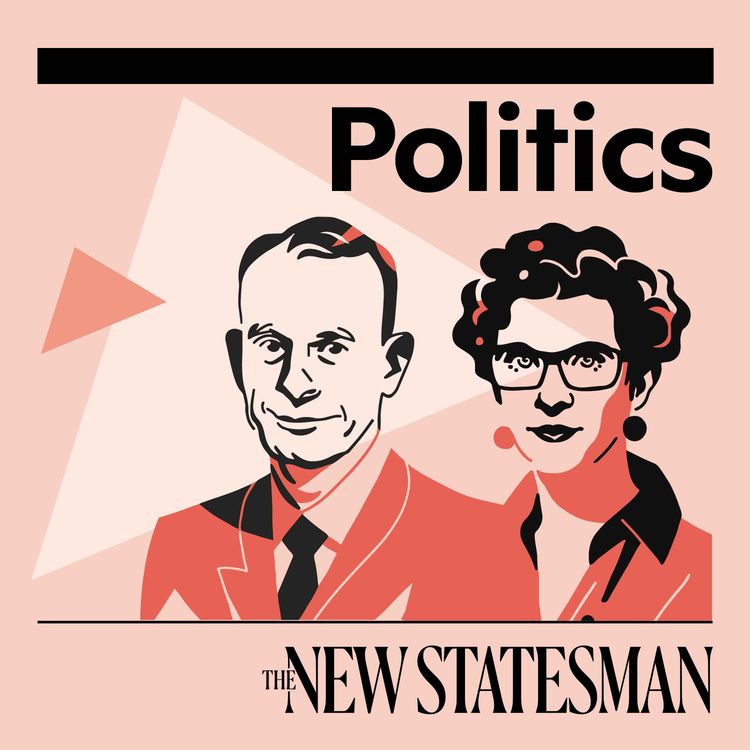Share

Daily Politics from the New Statesman
Labour’s swamp: Keir Starmer resets
Former Labour strategist and architect of the Labour missions, Peter Hyman, joins the New Statesman podcast to discuss Keir Starmer’s “plan for change” speech on Thursday.
Hyman discusses the difficulties Labour will face in implementing their missions and is scathing about Whitehall, saying resistance from staffers is stifling innovation:
“Three permanent secretaries I've heard in the last month have been resisting having outsiders come in to help,” he says.
“I don't blame civil servants, particularly individual civil servants… What I do blame is the system. At the moment, there is a culture that is not geared towards innovation. It is geared to business as usual… a lot of civil servants are incredibly paranoid about taking any risks because they fear they'll be called in front of a select committee.”
Read: Starmer’s pledges leave his government exposed, by Rachel Cunliffe; Keir Starmer must remember his mission, by Peter Hyman
SAVE £££ THIS CHRISTMAS:
⭐️ Gift big ideas, bold politics, and proper journalism from just £2
LISTEN AD-FREE:
📱Download the New Statesman app
MORE FROM THE NEW STATESMAN:
❓ Ask a question – we answer them every Friday
⏰ Get our daily politics newsletter every morning
✍️ Enjoy the best of our writing via email every Saturday
More episodes
View all episodes

A three horse race in Gorton and Denton
24:46|On Thursday, a by-election in a Southern Manchester constituency, Gorton and Denton, is shaping up to be a seismic litmus test for British politics.After the previous MP, Labour’s Andrew Gwynne, stepped down in January, an opening for a new MP has set in motion a battle between Labour and their insurgent challengers, Reform and the Green Party.Oli Dugmore is joined by our senior data journalist Ben Walker to discuss.
What if Russia wins?
35:41|It has been four years since Russia’s full-scale invasion of Ukraine. The war has settled into a grinding and uncertain stalemate.Despite proving remarkably resilient, Ukraine, and the rest of the world, must face the question: What if Russia wins?Katie Stallard explores this urgent question with German political scientist, Professor Carlo Masala.
Labour Together’s attack on press freedom
27:45|Why has Keir Starmer ordered an investigation into Labour Together? What the hell is going on with our local elections? And what are we meant to make of Reform UK’s new “shadow cabinet”?You asked, we’ll answer. Anoosh Chakelian is joined by Rachel Cunliffe for the listener questions episode of Daily Politics from the New Statesman.📚 READ: https://www.newstatesman.com/politics/uk-politics/2026/02/dismay-as-no-10-works-with-brendan-cox-after-misconduct-claims
Rutger Bregman “This Trump phenomenon really is fascism”
22:04|This week we launched another, that’s right ANOTHER, podcast. The Exchange is the New Statesman’s long-form interviews show, featuring some big names you know, and some big names you’ll be glad to learn of.Listen on: Spotify and Apple
Andrew arrested
28:20|The King’s brother, Andrew Mountbatten-Windsor, has been arrested.The alleged offence: misconduct in public office. The arrest came after claims Andrew allegedly shared official documents during his time as UK Trade Envoy, with two emails in particular showing up in the latest Epstein files – although police haven’t yet released the specifics of their investigation.Police have searched Andrew’s homes, and at the time of recording the former Prince is in custody. He’s not yet been charged, and has previously – strenuously – denied any wrongdoing on these matters related to Epstein. The King has said “the law must take its course”. Oli Dugmore is joined by Will Lloyd in the studio.
Is Bridget Phillipson really the most dangerous woman in Britain?
36:02|From “Nazi” to “Marxist” Bridget Phillipson, the education secretary, has faced intense criticism from all sides.But how exactly is she trying to reform the British education system? For the cover of this week’s New Statesman magazine, our executive editor Pippa Bailey has written an extended profile of Phillipson - exploring what motivates the education secretary, and how consequential the next few months could be for her - and the Labour Party.She joins Oli Dugmore in the studio.📚 READ: https://www.newstatesman.com/cover-story/2026/02/is-bridget-phillipson-the-most-dangerous-woman-in-britain
Has Starmer killed Welsh Labour?
27:29|Eluned Morgan, the first minister of Wales speaks to Megan Kenyon about her relationship with Keir Starmer, Welsh Labour’s prospects in the upcoming Senedd election and the threat of Plaid Cymru and Reform.
Should we ban social media for under-16s?
32:05|Will Keir Starmer ban kids from social media?Subscribe on YouTube: https://www.youtube.com/channel/UC2DHAQOeEg-Z-4trARDXHRA?sub_confirmation=1The PM has promised a crackdown on social media and said he’s “open-minded” to a full on, Australia-style ban for under 16s. Oli Dugmore is joined by senior editor George Eaton.
The Labour Party's "unpopularity contest"
33:23|Labour’s unpopularity contest, the joys of figure skating and bonkers advice from RFK Jr's nutrition chatbot.Anoosh Chakelian and Will Dunn explore the most ludicrous and laughable stories of the week.Including calls for Britain to set up a “Ministry of Sex”...